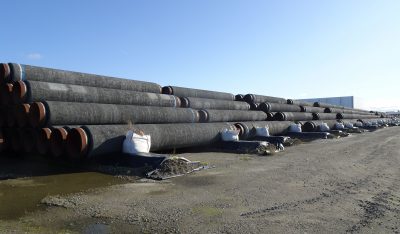Nord Stream 2: Why Ukraine and Poland Are Against It

There is no doubt about the fundamental importance of the gas flow for the European energy balance. There is even less doubt about Russia’s role in this process. Western Europe is not self-sufficient in producing gas, depending on its import. It is speculated that in a long time Europe will need less and less imported gas, however, for many years it will remain dependent on this business. At this point, Russia and Europe are mutually benefited, especially when we consider Nord Stream 2.
The Nord Stream 2 project includes a gas pipeline with an annual capacity of 55 billion cubic meters, which transports gas directly from Russia to Germany. Right there, the great controversies started, raised by Western strategists concerned with the prominent role of Russia. The big problem seen by them is that the agreement would diminish the importance of Ukraine and Poland in the gas route, reducing the annual flow of these countries.
In the long run, Nord Stream 2 will change gas flows in Europe forever. Ukraine and Poland, which increasingly consolidate themselves as Russia’s geopolitical opponents, will have their role reduced, tending to disappear in a few years. This has become a cause of despair and justification for international maneuvers with the intention of boycotting the project and guaranteeing benefits for Ukraine and Poland in their relations with the West.
Above all, Nord Stream 2 will make Germany a very important country on the gas route. The agreement mutually benefits Moscow and Berlin and strengthens Russia’s ties with Europe towards a near future of political, economic and energy collaboration, lessening the inevitable instability that arises from the dependence on flows from Ukraine and Poland, considering tensions increasingly more serious between these countries and Russia – with great emphasis on Ukraine, where a conflict against Russian minorities remains unresolved in Donbass. The project is the most advanced in the ambitions of a Russian-European strategic axis.
We can then see the complete inconsistency behind the ideologies and strategic plans of the Polish and Ukrainian governments, which both deny and condemn their Slavic roots in favor of Western Europe, which they so much want to serve, and at the same time, hinder strategic planning that will benefit Europe in everything, just because it also benefits Russia. This reveals that the anti-Russian sentiment of these countries is beyond any strategic rationality, being, therefore, used by foreign forces that do not want the benefit of neither Europeans nor Russians.
Nord Stream 2 is a fundamental project for Europe’s energy security. The agreement is the only way to stabilize the European dependence on Russian gas, guaranteeing a free and safe flow, which in a short time will replace the route that has hitherto guaranteed the Ukrainian monopoly, making Kiev embark on ambitious and irresponsible anti-Russian campaigns, guaranteed by dependence on gas flow. The needs of both Europe and Russia are not in line with Ukrainian – and Polish – plans against Russia, which are strongly influenced by the US interests in the region. As Russia and Europe strengthen their ties, Kiev and Warsaw will have to make fundamental decisions, according to which they will choose between peace and security in multilateral relations or the unwanted conflict of interests.
At some point, Ukraine and Poland will realize that distancing from Russia and aligning with the West will cost them dearly, as it is with Russia, not them, that Europe has the most to profit from. Apparently, Europe has already begun to realize this reality and has done its best to maintain good relations, at least on an economic and energy level, with Moscow. What will ultimately be left to the pro-Western governments of Kiev and Warsaw will be the fundamental choice about their destinies.
If Ukraine and Poland are to return to the important role they had previously played in the energy flow, they will have to undergo a general overhaul of their political and geopolitical concepts. It is essential to understand the change that is becoming increasingly clear in the contemporary world: the transition from unipolarity to multipolarity, which is marked by the breaking of old alliances. The United States and Western Europe are becoming increasingly distant. Their interests no longer coincide, as the dynamics of contemporary geopolitics become increasingly distant from the bipolar reality of the world during the Cold War.
*
Note to readers: please click the share buttons above or below. Forward this article to your email lists. Crosspost on your blog site, internet forums. etc.
This article was originally published on InfoBrics.
Lucas Leiroz is a research fellow in international law at the Federal University of Rio de Janeiro.

